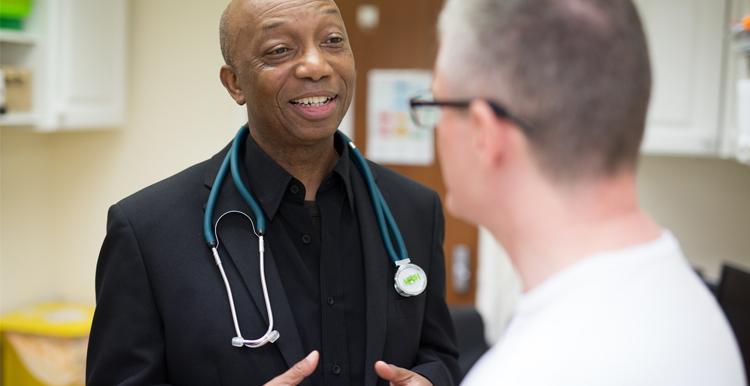Healthwatch England patient research on Physician Associates

What patients and the public think
It is challenging to accurately gauge people’s experience and understanding of physician associates. There are still not many PAs practising in the NHS, and there is little national data about which services employ them and in what capacity.
General awareness is mixed
In the polling, Healthwatch England found a mixed picture on awareness of physician associates. Over half of those surveyed (52%) agreed or strongly agreed that they “understood the difference between a physician associate and a doctor”.
However, there were differences when it came to age. Respondents aged between 18-34 were more likely to agree with the statement (58%) than those in older age groups (47% of 34–54-year-olds, and 49% of those aged 55+ agreed).
Some local Healthwatch explained that while patients might have heard of PAs and understood that they were not doctors, understanding what they can and can’t do is more limited.
In many cases, patients were not aware of the local presence of PAs and often only found out about the role when given an appointment with a PA.
Knowing who you are seeing is key
Where people knew they had received care from a physician associate, their experiences tended to be positive. People particularly valued that they could have their needs addressed quickly when they saw a PA.
However, Healthwatch England heard about several cases where patients were not made aware of who they were seeing before or during their appointment. In some instances, patients had specially asked to see a doctor but were instead assigned to see a PA.
Healthwatch proposes five steps to improve clarity
In partnership with the Patients Association and National Voices, we’ve made five recommendations to policymakers and regulators about how they can better support the roll out of PAs. A commitment to clarity about the PA role underpins these recommendations.
1. Clarity in direct patient care
Practising physician associates and those in training must explain their role to all patients they see. Providers of education and training, including medical royal colleges, should make clear that informing patients about roles and responsibilities is core to providing high-quality care.
2. Clarity on choice
While PAs can provide high-quality care and improve patient access for more straightforward health problems, national and local NHS organisations must make clear that patients have a choice to request an appointment with a fully qualified doctor if they prefer.
So people can make an informed choice, services should tell patients before an appointment:
- The types of clinicians available to see them
- The lengths of time they may have to wait to see different professionals, and
- If they see a physician associate, the PA may have to refer the patient to a GP or other senior doctor if the patient’s problem falls outside their scope of practice.
3. Clarity on training and regulation
In our polling, we found that the factor which made the public most confident in the person providing their care had “their skills and knowledge regularly reassessed”.
National bodies, including the Faculty of Physician Associates and the General Medical Council should be clear about the scope and content of the initial training of PAs and their ongoing assessment and revalidation.
4. Clarity of communication
Given the increasing use of new roles in services, NHS England and other national bodies should adopt a proactive approach to communicating with the public in this area.
Alongside broader awareness campaigns, Integrated Care Boards should set up patient forums to explicitly examine the deployment of new workforce roles. Patients and their representatives must be centrally involved in all future discussions about the use of PAs and other new roles.
5. Clarity on effectiveness
NHSE and the GMC should commission a formal evaluation of patient experience of physician associates in GP and hospital settings. This research would help to learn lessons to inform the expansion of this role and provide assurance that PAs are being used appropriately and are not as substitutes for fully qualified doctors.
Healthwatch Haringey has been raising questions about the role of Physician Associates in Haringey and the NHS North Central London Integrated Care Board area (NCL ICB).
We took up the issue following a safety incident concerning a patient at a Haringey surgery which was raised in parliament. We worked with Patient Participation Group (PPG) members and others to understand the scale of the use of Physician Associates in GP surgeries, their duties and responsibilities and how they are trained and supervised.
Want to learn more about physician associates?
Find out what care they can offer you and how their role differs from fully qualified doctors in our advice article.


